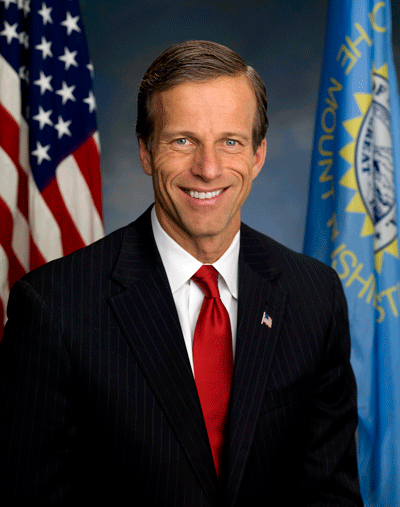
A Solution in Search of a Problem
By Sen. John Thune

An internet connection is something we increasingly depend on in just about every area of our life these days. There remains work to be done to get a reliable connection to more Americans, especially in rural areas like South Dakota. But thanks in large part to the light-tough regulatory approach we have taken in the past, the internet in the United States continues to advance, delivering greater benefits for Americans online.
Given the success of this light-tough approach, one has to wonder why the Biden Federal Communications Commission (FCC) is now pushing for a return to heavy-handed net neutrality rules last attempted under the Obama administration. The basic premise of net neutrality – that internet service providers shouldn’t prioritize certain internet traffic at the expense of other traffic – has strong bipartisan support. The issue is that the Biden FCC aims to go much further and, under the guise of net neutrality, assert broad new government powers over the internet using rules designed for telephone monopolies during the Great Depression. Like the Obama-era rules before it, the latest net neutrality proposal threatens to decrease investment in broadband and subject the internet to more government interference, like regulating prices.
In 2017, a new Republican majority on the FCC repealed the Obama-era net neutrality rules. The prospect was met with near-hysteria as Democrats warned that the internet as we knew it would disappear, that speeds would slow to a crawl, and that we would get the internet one word at a time. But anyone who’s been online in the last seven years knows none of this came to pass. In fact, the internet hasn’t just survived, it’s thrived since then. Innovation has flourished. Competition has increased. And internet speeds have gotten faster and faster.
It’s unclear what the Biden FCC’s so-called net neutrality proposal is trying to achieve besides more government control. As FCC Commissioner Carr has pointed out, there’s reason to fear this proposal could drive up Americans’ internet costs and open the door to new taxes and fees on your internet bill. This proposal could also decrease investment in broadband expansion, which would be devastating for rural areas like South Dakota where investment is critically needed.
More red tape is not the solution to bridging the digital divide. Reducing the burdensome regulations that stifle broadband expansion has long been a priority of mine. The permitting process is just one example of this. While my MOBILE NOW Act helped move the federal government in the right direction, there continues to be unnecessary delays and costs associated with permitting that get in the way of expanding internet access. I will continue to work for accountability and efficiency in federal broadband programs to ensure more South Dakotans have access to a reliable internet connection.
Plans for increased government interference, like the FCC’s net neutrality proposal, are often a solution in search of a problem. America has played a leading role in the digital age in large part because we’ve adopted a light-tough approach to internet regulation. There is absolutely no reason for heavy-handed interference in a free, open, and thriving sector of our economy, and I will continue my work to remove unnecessary regulations that cause Americans to lose out on the benefits of internet innovation.
